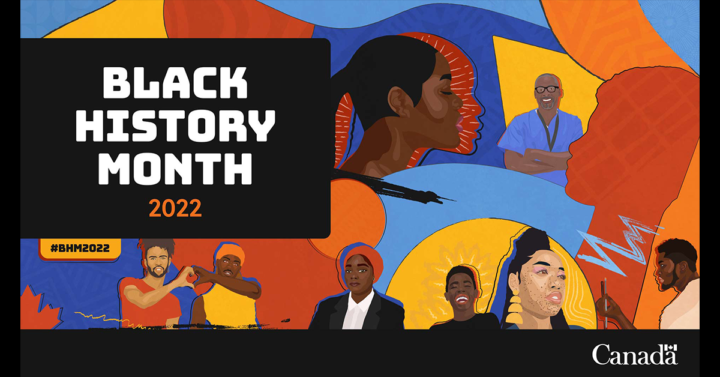
By Geoffrey Melbourne, FCIA, Chair of the Diversity, Equity, and Inclusion Advisory Group
Two years into a pandemic filled with challenge and uncertainty, one would be justified in scratching their head at the relevance of this article’s title. But depending on your interests, demographic, or penchant for old Hollywood films, the 1967 movie starring the recently deceased Sidney Poitier might come to mind. Or maybe it’s the singsongy reverb of Black Uhuru’s reggae classic?
In this case, I’m referring to the former. I didn’t rewatch the movie before writing this article. However, the plot, which centres around two families’ struggle to overcome their concerns about interracial marriage, seems apt as we commemorate Black History Month (BHM). As an aside, it is also an opportunity to reflect on the stellar and groundbreaking career of the late Sidney Poitier.
BHM is a time-honoured tradition, one where we reflect on the enormous contributions Black people have made, and continue to make, in all sectors of society. As the CIA moves forward to address gaps in diversity, equity, and inclusion within the profession, recognizing and celebrating BHM is a small, but important, demonstration of that commitment.
Who’s invited?
Why is the recognition of occasions like BHM integral to the diversity initiatives of the CIA? Before pondering that question, I must first ask a broader one – why do we read and study history more generally, and build and visit museums with various areas of focus or statues of icons?
In that broader context, it is indisputable and regrettable that, for far too long, the experiences of Black people, Indigenous Peoples, and other minority groups have been ignored, distorted, or even buried in the histories of Canada and other developed nations.
One of the values of the CIA is “We care about people. We foster a diverse and inclusive environment. We put the public interest ahead of our own.” It is my fundamental belief that diversity is a strength, leading to better outcomes and more sustainability when engaged thoughtfully.
To reflect this value in practice, the commemoration of BHM and other such occasions becomes incumbent on the CIA. In addition, tangible steps would be needed to address areas of improvement such as the relative under-representation of underserved groups revealed by the CIA’s member survey on diversity.
Setting the table
Last summer, I was pleased to be asked to lead the CIA’s newly constituted Diversity, Equity, and Inclusion (DEI) Advisory Group – an initiative that supports the CIA’s efforts to address the needs of its members in this area.
Since beginning work in the early fall, the DEI Advisory Group has identified student outreach and member recruitment as a primary area of focus. The pathway to actuarial qualification is rigorous, and raising awareness and promotion at an early stage, along with providing support through scholarships and mentorships, are vital to increasing representation among targeted groups over time.
Though optimistic, we also understand that change does not happen overnight and will require our sustained and collaborative effort.
A potluck of opportunity
Guess Who’s Coming to Dinner was a movie ahead of its time, one that challenged attitudes and raised the collective conscience. These days, though we are unable to play host to those closest to us, let alone those we don’t know, it’s important to continue making room at the table – albeit metaphorically.
I hope the observance of BHM can be seen as an ongoing celebration of the differences that bring us together – and that, one day, the representation we see in the profession might be as diverse as the kaleidoscope of this society we call home.
This article reflects the opinion of the author and does not represent an official statement of the CIA.
The following comments were shared by readers:
Shannon Patershuk: The article was timely and well written.
Today the Minister of Labor spoke to the Canadian Club of Toronto giving the reason for diversity. Without it, we are missing out on excellent talent. It is essential morally and economically.
Thanks to Geoffrey Melbourne for his leadership and communication skills.






The article was timely and well written.
Today the Minister of Labor spoke to the Canadian Club of Toronto giving the reason for diversity. Without it, we are missing out on excellent talent. It is essential morally and economically.
Thanks to Geoffrey Melbourne for his leadership and communication skills.